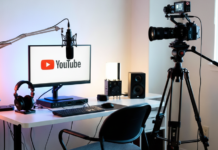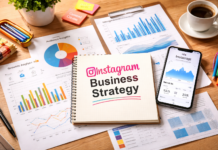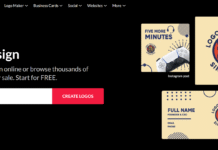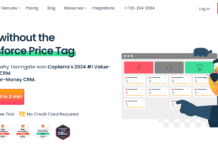Be Different in Business: The Only Way to Survive in Today’s Market
Introduction
The global marketplace is more competitive than ever before. Every industry is flooded with new products, innovative marketing strategies, and aggressive competitors. In such an environment, similarity is no longer safe it is fatal. The brands and startups that succeed are those that learn how to be different in business. They understand that distinctiveness is not just a marketing advantage but a survival strategy.
Being different does not mean being eccentric without purpose. It means creating a clear identity, a voice, and a value that customers can instantly recognize and relate to. Today’s consumers are exposed to thousands of choices daily; they ignore what feels repetitive and gravitate toward what feels unique. For startups, learning how to be different in business is the key to breaking through the noise and building sustainable growth.
This article explores why differentiation is the only viable path to survival, how to identify a unique business position, and how to cultivate a lasting brand identity in today’s market.
The Crisis of Sameness in Modern Markets
One of the biggest threats to modern businesses is the epidemic of sameness. Products look the same, slogans sound the same, and customer experiences feel identical. This is the reason why many companies, despite having good ideas, fail to stand out. Without a strategy to be different in business, even the most promising startup becomes invisible.
Digital globalization has made innovation accessible to everyone. A product launched in one country can be replicated within weeks elsewhere. As competition accelerates, only brands with a distinctive identity survive. Differentiation becomes the shield against market saturation and price wars.
Startups that try to please everyone usually end up connecting with no one. To succeed, a company must be brave enough to define its uniqueness and defend it. Learning to be different in business means identifying a core value that competitors cannot easily imitate.
The Psychology of Differentiation
Why does being different matter so much? The answer lies in human psychology. People remember contrast more than similarity. The brain is wired to notice what breaks patterns. This is why differentiation in branding triggers attention, curiosity, and emotion.
For startups, understanding the psychological dimension of difference is essential. When you know what makes your brand stand out, you can position it to appeal to your audience’s deeper motivations. Companies that successfully be different in business create an emotional connection that transcends features or price.
Differentiation also drives loyalty. When customers identify with your values and identity, they become advocates rather than mere buyers. In a world driven by trends and short attention spans, emotional distinction creates staying power.
Building a Brand That Truly Stands Out
Creating a recognizable and memorable brand requires more than design or advertising. It demands strategic self-awareness. Founders must ask: what makes our story worth telling? The process of learning how to be different in business begins with introspection.
A distinct brand defines its “why”—the purpose behind what it offers. It focuses on the customer experience rather than just the product. From packaging to messaging, every element must reflect authenticity. Startups that copy industry leaders often lose credibility because imitation signals insecurity.
To stand out, startups should emphasize brand personality. This involves choosing a tone of voice, visual identity, and narrative that express genuine values. Authentic differentiation is not created overnight; it evolves through consistent storytelling, feedback, and innovation.
For more practical insights on brand identity and startup growth, visit this growth and marketing guide.
Innovation as a Core Differentiator
In today’s economy, innovation is not a luxury—it is a necessity. The fastest-growing companies in the world constantly reinvent themselves. They understand that the best way to be different in business is to challenge the status quo regularly.
Innovation does not only refer to technology; it applies to process, design, service, and communication. A small improvement in customer experience can create massive differentiation. The businesses that thrive are those that identify unmet needs and provide fresh solutions.
Startups should cultivate a mindset of experimentation. Testing, failing, and iterating are part of the process. Teams that innovate continuously remain relevant because they anticipate market changes before they happen. A company that knows how to be different in business treats change not as a threat but as an opportunity.
The Power of Purpose
Purpose-driven businesses stand apart because they operate with meaning. In an age of transparency, consumers want to support companies that share their values. Having a purpose creates an emotional bond that no marketing campaign can replicate.
Startups with a social, environmental, or ethical mission naturally differentiate themselves from competitors focused solely on profit. A clear purpose gives direction to innovation and messaging, ensuring every decision aligns with the brand’s values.
When customers sense authenticity, trust grows. That trust is what allows companies to withstand competition and market turbulence. Purpose, therefore, is the foundation for any strategy designed to be different in business.
Customer Experience as the Ultimate Differentiator
In saturated markets, customer experience becomes the strongest form of differentiation. How a customer feels when interacting with a brand determines whether they stay loyal or switch. Building exceptional experiences is the essence of learning to be different in business.
Personalization, speed, transparency, and empathy all contribute to memorable experiences. Startups that invest in understanding customer needs can create journeys that surprise and delight. Technology can amplify this process, but human connection remains at the core.
Satisfied customers become ambassadors. They promote the brand organically through trust and storytelling. This type of advocacy cannot be bought—it is earned through consistent value and care.
Emotional Storytelling and Authentic Communication
Every strong brand has a story. Storytelling transforms data into emotion and strategy into meaning. To truly be different in business, startups must learn how to communicate their journey, struggles, and purpose authentically.
An effective story does not exaggerate it connects. It allows customers to see themselves in the narrative. The tone, imagery, and message must be consistent across all touchpoints, from social media to product packaging.
When done right, storytelling builds memory. It turns one-time buyers into lifelong followers. In an environment filled with advertisements, the only messages that last are those rooted in emotion and truth.
Leadership and the Courage to Be Different
At the heart of every unique business stands a bold leader. Differentiation begins with courage—the courage to question, to stand alone, and to lead with conviction. Leaders who understand how to be different in business inspire innovation and loyalty.
Being different can be uncomfortable. It challenges conventions and sometimes invites criticism. Yet, history proves that all major innovators from small startups to global corporations achieved greatness by daring to think differently.
Great leaders empower their teams to share this mindset. They create environments where creativity is celebrated, risk-taking is supported, and individuality is respected. This culture of empowerment is the true foundation of long-term differentiation.
The Risk and Reward of Standing Apart
Deciding to be different in business is not an easy path. It requires courage to go against established norms and persistence to hold your ground when others doubt your vision. However, the rewards that come with true differentiation are substantial. When a company dares to take risks and express authenticity, it opens the door to new markets, loyal customers, and lasting influence.
Being different attracts attention. People are naturally drawn to brands that stand out and represent something new. Yet, difference also carries the risk of misunderstanding or criticism. Many successful startups were initially dismissed as unrealistic or too unconventional. What made them survive was their commitment to identity. The courage to be different in business often turns early skepticism into long-term admiration.
The real secret lies in meaningful difference. Being unique only for the sake of appearance does not build value. The distinction must serve a purpose—solving a problem, challenging convention, or fulfilling an emotional need. That is when difference becomes power.
Understanding the Market Before Being Different
A startup cannot successfully be different in business without first understanding the market it operates in. True differentiation begins with awareness. Entrepreneurs must study their customers deeply to learn what they desire, what frustrates them, and what alternatives they already have. Once this foundation is clear, difference becomes strategic rather than accidental.
Market research helps founders identify gaps in products or services. These gaps represent opportunities to innovate. Sometimes the difference lies in technology or product design; other times, it is in how the brand communicates or delivers experiences. The process requires both observation and empathy.
Startups should also examine competitors—not to imitate them but to understand what makes them predictable. When you identify where others blend together, you find where you can stand out. The ability to see sameness is the first step toward becoming distinct. By knowing what exists, a startup can better define what does not.
The Role of Creativity in Sustainable Differentiation
Creativity is the heartbeat of every successful differentiation strategy. Without creative thinking, even the best data and research remain lifeless. To be different in business, a company must foster creativity across all levels of its organization. This means encouraging experimentation, rewarding bold ideas, and seeing failure as part of growth.
Creativity does not belong solely to the marketing department or product design team. It is a mindset that should guide decisions in strategy, leadership, operations, and communication. A creative company is one that can reinvent itself whenever the market shifts.
One powerful way to nurture creativity is to hire diverse thinkers. When people from different cultures, disciplines, and perspectives collaborate, they generate ideas that are more original and inclusive. Diversity fuels creativity, and creativity sustains the ability to be different in business over time.
Adaptability: The Key to Staying Relevant
Markets evolve rapidly. Consumer expectations change, technologies advance, and social trends redefine what people value. Startups that wish to survive must not only learn how to be different in business but also how to stay different. This requires adaptability.
Adaptability means the willingness to question what once worked and to evolve with purpose. The most successful businesses treat change as a catalyst for creativity rather than a threat. They listen to customers, interpret data, and adjust strategies before it is too late.
Differentiation is not a one-time effort; it is an ongoing process. A company that fails to evolve loses relevance, even if it was once unique. By constantly analyzing feedback and market trends, startups ensure their difference remains valuable and meaningful.
Using Technology to Strengthen Uniqueness
Technology gives startups the tools to compete with larger companies. Artificial intelligence, automation, and digital analytics have transformed how businesses innovate and communicate. However, technology alone is not what makes a company distinct; it is how the company uses it creatively to deliver better value.
Startups that leverage technology strategically know how to be different in business. They personalize customer experiences, analyze behavior to predict needs, and design products that feel intuitive and human. The difference lies not in owning the latest technology but in using it with purpose.
For instance, a small business that uses automation to provide fast and personal service differentiates itself from competitors who rely solely on mass communication. Technology amplifies the human element when applied thoughtfully. The goal is to combine innovation with empathy—something algorithms alone cannot achieve.
The Role of Leadership in Shaping Difference
No company can truly be different in business without visionary leadership. Leaders define culture, set direction, and inspire others to think boldly. A founder’s ability to see opportunities where others see risk determines how far a startup can go.
Leaders who embrace difference are not afraid of failure. They encourage creative debate and take calculated risks. They understand that conformity breeds mediocrity, while innovation demands experimentation. A leader’s belief in originality spreads throughout the organization, influencing how every employee behaves and how every decision is made.
Strong leadership also means consistency. While being open to change, a leader must stay grounded in the company’s core mission. This balance between flexibility and conviction defines sustainable success. The courage to be different in business begins with the courage to lead authentically.
Turning Customers into Partners
Differentiation is most powerful when customers feel like part of the brand’s journey. In modern business, engagement is more valuable than exposure. To truly be different in business, startups must turn passive customers into active participants.
This can be achieved through personalization, open dialogue, and shared storytelling. When customers contribute ideas, share experiences, or co-create with the brand, they develop emotional ownership. Their loyalty deepens because they feel seen and valued.
Customers also serve as brand advocates. Positive word-of-mouth is the most credible form of marketing. People trust people more than advertisements. When customers believe in your uniqueness, they naturally promote it to others. Every interaction becomes an opportunity to strengthen your brand’s distinction.
Measuring the Impact of Being Different
Differentiation must produce measurable results. To evaluate whether a company has succeeded in being different in business, startups should monitor both qualitative and quantitative indicators.
Key metrics include customer engagement rates, brand recall, referral frequency, and market share growth. These show how audiences respond to your unique identity. Equally important are internal metrics such as employee innovation rates, retention, and satisfaction. A culture that celebrates difference creates a motivated and creative workforce.
Startups should also use analytics to test which aspects of their differentiation resonate most. Data-driven insights help refine strategies and ensure the company’s uniqueness aligns with audience needs. Measurement transforms creativity from intuition into a repeatable, scalable process.
Learning from Global Examples
Looking at the global market reveals clear patterns among successful innovators. Brands such as Patagonia, Spotify, and Netflix each redefined their industries by challenging traditional business models. What unites them is their commitment to authenticity and their decision to be different in business from the beginning.
Patagonia built its brand around environmental activism, proving that responsibility can be profitable. Spotify revolutionized music consumption by prioritizing accessibility over ownership. Netflix disrupted entertainment by empowering consumers with choice. Each of these companies used difference as a compass, not a tactic.
Startups can learn from these examples by identifying a unique vision early and aligning every strategy around it. Consistency in identity builds recognition and trust. Difference only matters when it is lived, not just claimed.
Building a Legacy Through Difference
Sustainable businesses think beyond immediate success. They aim to build a legacy that inspires future generations. To be different in business means to create long-term value rooted in purpose and authenticity.
Legacy is not only about scale or revenue; it is about impact. Startups that stand out make a difference in how people think, live, or connect. Their contribution becomes part of culture, not just commerce.
Founders should constantly ask how their uniqueness adds meaning to the market. When differentiation aligns with purpose, it becomes timeless. A legacy built on originality is the ultimate proof that difference drives survival.
Final Summary and Strategic Takeaways
In a world overflowing with competition, imitation leads to invisibility. The only sustainable strategy is to be different in business with intention, courage, and creativity. True differentiation begins with understanding your audience, nurturing innovation, and leading with authenticity.
Startups that embrace their individuality build stronger emotional connections, attract loyal communities, and adapt faster to change. Being different is not rebellion for its own sake; it is about adding distinct value that customers cannot find elsewhere.
To survive in today’s market, companies must turn difference into discipline. It is a continuous process of learning, adapting, and growing. The future belongs to those who dare to define themselves. Be original, be meaningful, and most importantly, be different in business.
















































